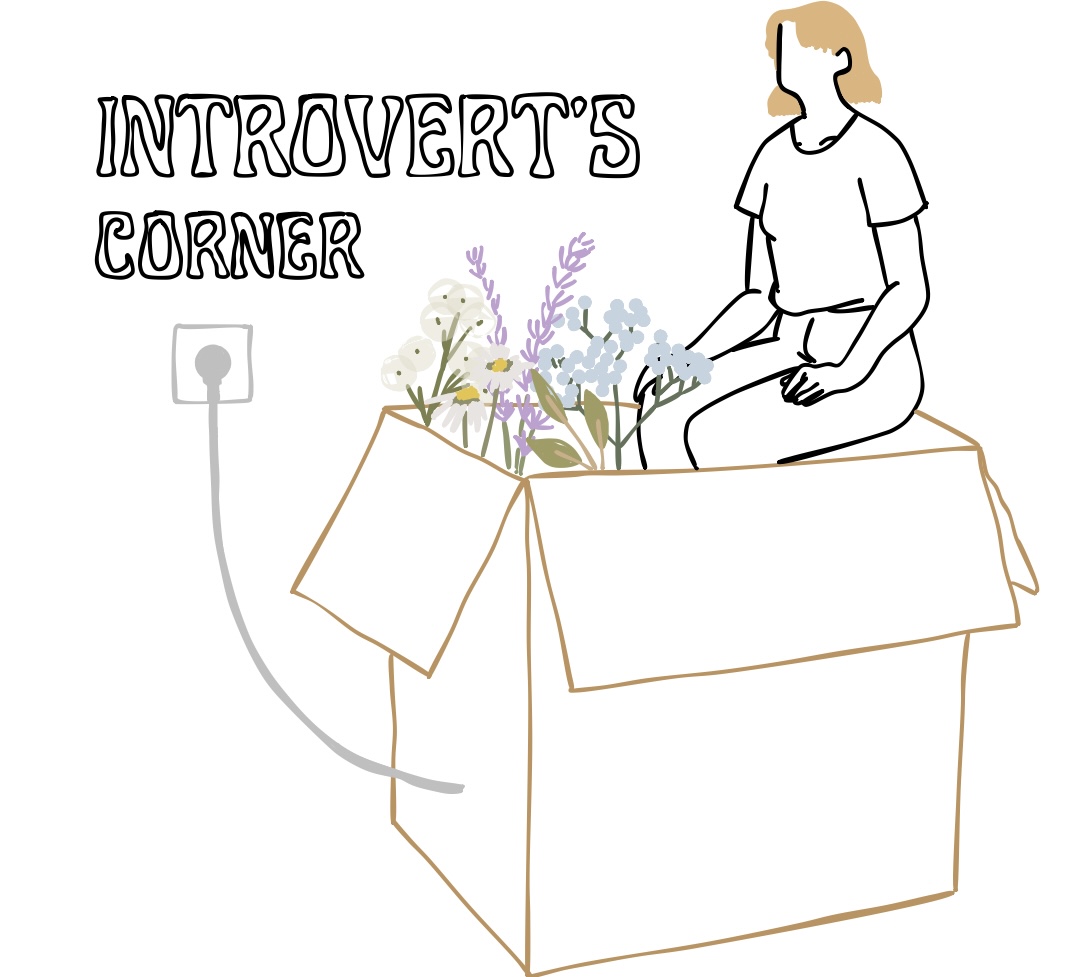The Art of Leaving an Introvert Alone

It's Friday evening; the last class of the week is over; final exams are approaching, and I just want to go home, watch my favorite show, get some sleep and recharge before the next week. But the group chat is buzzing about which bar we should hit first tonight. The thought of a packed venue full of chatter and clinking glasses makes my energy plummet—but somehow, I let myself get roped in. By Monday, my friends are chipper and ready for class, while I’m still recovering from a night I didn’t even really enjoy. Why does socializing fuel them but leave me drained? The answer lies in our wiring: I’m an introvert, and they’re extroverts.
What is an Introvert?
In our day-to-day language, we constantly use the terms "introvert" and "extrovert," but what do these terms really mean?
In the early 1900s, the psychiatrist Carl Gustav Jung first introduced the idea that a person's energy either stems from the inner or outer world. In this theory, he introduced the terms "introvert" and "extrovert," two personality types that stand opposite of each other. Introverts are described as quiet and calm people who enjoy spending time alone. Their energy stems from their inner world, or in other words, themselves and their own spaces. On the other hand, extroverts are described as outgoing and talkative, relishing in social interactions. Their energy stems from the outer world, or in other words, the people and situations around them.
On a sole theoretical level, the character types are opposing, but there is no hierarchy, no one is better than the other.
To my fellow introverts: have you ever felt like being an introvert is something negative?
If you have ever fallen into a rabbit hole on YouTube, Reddit, Instagram, etc., you might have seen self-acclaimed "coaches" who can "train you to become an extrovert in ten steps," or a post from a desperate introvert who wants to become more outgoing. However, it is not only social media that confronts us with an abundance of people trying to tell us how to become an extrovert. On business.com, it's stated that, in the business world, "embracing your inner extrovert is key." But even in the unlikely case that you have never been online, real-world situations favoring extroverts are endless and hard to miss: group presentations, participation grades, school counselors who chase you into your dreams about joining a campus club.
Becoming an Extrovert
Some studies indeed suggest that learning some extrovert behaviors can have a positive effect on introvert's overall happiness. However, contrary to what some social media posts suggest, you won't be able to become a full extrovert overnight. While the causes for your introverted or extroverted state can be traced back to your upbringing—and therefore able to be trained out—it is also linked to your genetics and brain chemistry. A new study found that extroverts get jolts of satisfaction and energy from social interactions because it raises their dopamine levels. While you can change things about your environment, changing your brain chemistry is not so easy.
Being Adopted by an Extrovert
A question to my fellow introverts: how many of your friends are extroverts? For the majority of my life, I would probably say, "all of them." I happened to become best friends with the chatty girl next to me on the first day of middle school, and at AUP, my now best friend just started talking to me at a random club event—she decided we were friends, and I happily went along with it. Obviously, to an extent I am exaggerating; I love my friends and sincerely enjoy spending time with them. Although, aligning our interests can sometimes be challenging. While my friend wants to go out, I want to stay in and spend some time alone. While she enjoys going to large social gatherings, I prefer smaller groups. In my current friendship, this works great because we push each other out of our boxes, and simultaneously make compromises.
Contrarily, I have also experienced introvert-extrovert friendships that are extremely one-sided. What I have gathered is that introverts tend to tag along with activities their extrovert friend proposes. For introverts, attending too many events, social gatherings, etc., is draining; they also may feel like a nuisance, tagging along all the time.
I do believe that introverts and extroverts benefit from being friends. If the relationship is healthy, extroverts can push introverts out of their comfort zone and vice versa. But the relationship has to be mutual and not structured in a hierarchical, "being an extrovert is better" kind of way.
But I am an Introvert
Trying to behave like an extrovert can brighten your spirits for the duration of the activity, but too often, introverts have to pay a price for that. Take my example from the beginning: while my extroverted friends enjoyed a great night out and did the same thing the next night, I had to stay in and recharge my energy for the next two days.
Sometimes, it is great to go out and have a lot of social interactions, but on other days, it is even better to just spend some time alone.
Surely, I could now give you a list of what introverts are better at than extroverts—these lists exist too, they are just not as many and not as popular—but what would be the point? I don't want to prove that being an introvert is greater than being an extrovert. Because it isn't. But neither is being an extrovert. They are just different. It would be nice, though, if certain extroverts could leave me alone and stop telling me how much better their lives are because they don't sit at home!





